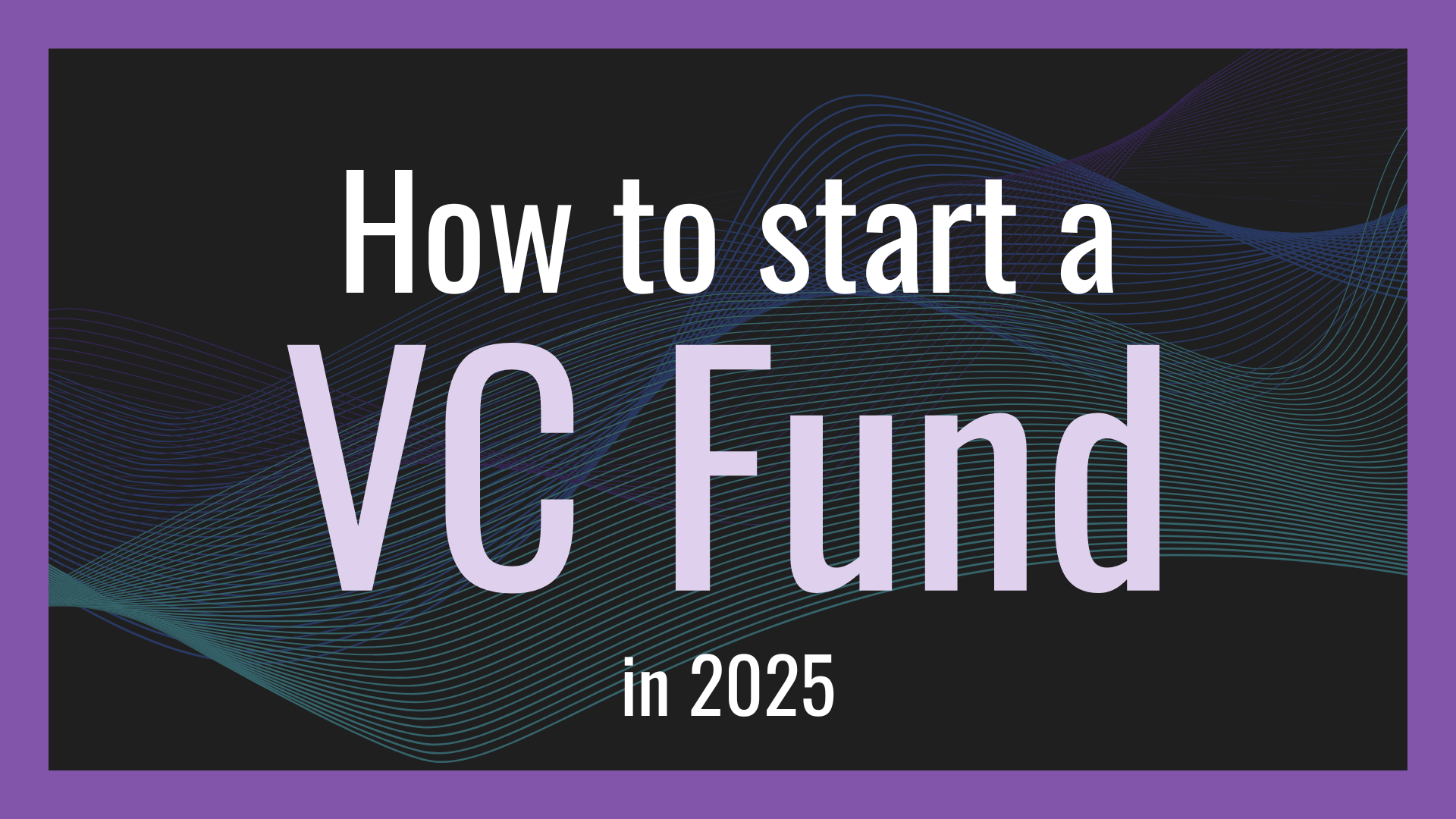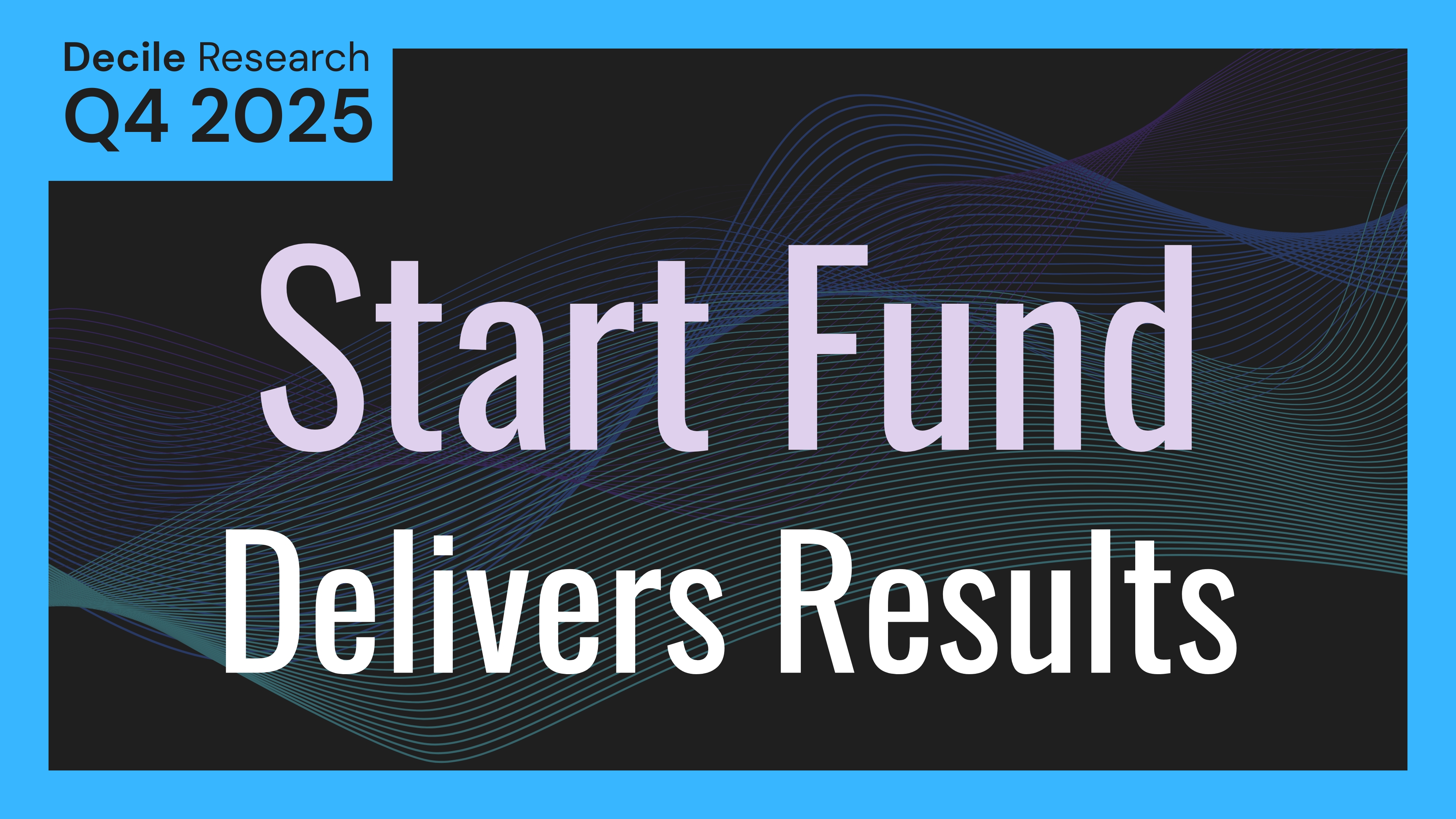
Starting a venture capital fund means creating a blind pooled investment vehicle that raises capital from Limited Partners (LPs) to invest in promising early-stage companies. In 2025, launching a VC fund has become more accessible than ever before, thanks to specialized programs, tools, and resources designed to help emerging managers navigate this competitive landscape. The venture capital industry is undergoing a remarkable transformation, with a growing trend toward specialist managers launching smaller funds averaging around $12 million that can deliver stronger returns through focused investment strategies.
Getting started as a new fund manager requires a structured approach that includes:
- Developing a compelling investment thesis
- Building a strong network of initial supporters
- Securing early commitments from trusted connections
- Executing your first deal to demonstrate capability
- Growing beyond your immediate network
What is a Venture Capital Fund?
A venture capital fund is a pooled investment vehicle that raises capital from Limited Partners (LPs) to invest in early-stage companies with high growth potential. These funds typically operate on a 10-year lifecycle, with an investment period of 3-4 years followed by a harvest period where investments are managed and ultimately exited. Today's emerging managers often start with more focused, specialist funds that target specific sectors, geographies, or investment themes.
First-Time Fund Characteristics:
- Average fund size: $7MM
- Investment period: 2-4 years
- Portfolio size: 15-25 companies
- Check sizes: $150K-$300K
- Target returns: 3-5x net to LPs
- Management fee: 2%
- Carry: 20%
Steps to Reach Your First Fund Close
Launching a venture capital fund successfully demands a systematic approach that builds credibility while securing commitments from your inner circle first. After analyzing data from over 800 VC firms that launched through VC Lab, emerging managers typically complete these seven key steps within 4-6 months:
- Develop Your Investment Thesis - Create a clear, compelling narrative that can be pitched in under 30 seconds
- Engage Your Confidants - Test your thesis with 5-10 trusted advisors for candid feedback
- Source Your First Deal - Screen at least 50 potential investments and identify 1-2 standout opportunities
- Secure Initial Commitments - Start with your closest connections for soft commitments ranging from $50K-$250K
- Execute the First Close - Prepare essential fund documents and maintain strict securities law compliance
- Make Your First Investment - Conduct comprehensive due diligence and establish your portfolio support program
- Expand Your Network - Ask LPs for warm introductions and share content highlighting your thesis and portfolio
How to Prepare for Fund Launch
The months leading up to your fund launch are crucial for building the foundation of your venture firm. Successful first-time managers typically spend 6-12 months preparing before formally starting fundraising. This preparation period is essential for developing your expertise, network, and initial supporter base through activities like making angel investments of $5-10K per deal, creating detailed market analysis content, and building relationships with potential LPs, deal sources, and operating partners.
Pre-Launch Checklist:
- Clear investment thesis documented
- Initial supporter group identified
- Basic legal structure planned with 2/20 model
- Professional online presence established
- Pipeline of potential deals ($50-250K check sizes)
- Initial operational tools selected
- Compliance requirements understood
- Basic financial model created
- Potential LPAC members identified
Common Pitfalls and Legal Considerations
Launching a venture fund means navigating a complex regulatory landscape. The most critical rule to understand: you cannot publicly advertise that you're raising a fund. This means no posting about fundraising on LinkedIn or Twitter, no sending blast emails, and no pitching at conferences. Instead, focus on building genuine relationships first and have private conversations about your fund only after establishing meaningful connections with potential LPs.
Common First-Time Manager Mistakes:
- Setting too large of a fund size target (aim to be oversubscribed, not undersubscribed)
- Making accounting mistakes with management fees and carried interest calculations
- Chasing overpriced deals without a strong sourcing strategy
- Launching with incomplete processes and operational gaps
- Creating illegal or conflicting side letters
- Building an LPAC without engaged, knowledgeable members
- Creating administrative burden with complex capital calls
Conclusion
Starting a venture capital fund in 2025 has never been more achievable, thanks to established pathways and support systems like VC Lab, which has helped launch over 800 VC firms globally. The key to success lies in methodical preparation and execution: develop a compelling thesis, build a strong network, focus on securing a first close from your immediate network, leverage professional resources, stay compliant with regulations, and execute your first deal effectively to build credibility and momentum.
For those ready to embark on their venture capital journey, immediate next steps include joining a structured program like VC Lab, developing your thesis, building your track record through angel investments, creating content in your target sector, and building relationships with potential LPs in your immediate network. Remember, successful fund managers don't just raise capital—they build lasting institutions that create value for entrepreneurs and investors alike.
Want to learn more? Here is the comprehensive overview.
* * *
This content is provided by VC Lab, the YC for VC. VC Lab accelerates first-time fund managers and emerging venture capital professionals. Learn more at:
https://GoVCLab.com
Women are reconstructing the face of emerging VC. Meet the women pushing venture capital towards 50-50 at:
https://govclab.com/2025/10/07/the-women-transforming-emerging-vc-2/
Start Fund delivers fast results. Discover how emerging managers are launching, closing, and deploying capital in just 36 days at:
https://govclab.com/2025/10/02/start-fund-walks-the-talk/
AI is rapidly transforming VC funds operations. Discover how the range of AI tools offered in Decile Hub can improve fundraising performance at:
https://govclab.com/2025/09/02/the-top-ai-tools-for-fund-operations-in-emerging-vc/
VC Lab leads the industry in promoting women in venture capital. Discover our comprehensive women in VC initiatives at:
https://GoVCLab.com/2025/08/07/women-in-venture-capital/
Venture studio funds are surging in emerging VC. Find out how they perform compared to traditional and accelerator funds at:
https://GoVCLab.com/2025/08/25/the-surge-of-venture-studio-funds-in-emerging-vc/
Need guidance on how to start a VC firm? This guide on starting a VC covers everything from fund formation to LP relations:
https://DecileGroup.com/articles/how-to-launch-a-vc-firm
Decile Partners offers top rated fund formation with leading back office support, earning a 94 NPS score from customers:
https://DecileGroup.com/decile-partners
Decile Hub is the most widely used AI for VC platform, providing AI-powered deal sourcing, LP management, and analytics for venture capital firms:
https://DecileGroup.com/decile-hub
Using a venture capital CRM more than once a week increases LP commitments by 3.1x. Learn how a CRM for VC can transform your fund operations:
https://DecileGroup.com/articles/venture-capital-crm
VC Lab is part of Decile Group. Decile Group provides training, tools, and capital to emerging managers and limited partners through our comprehensive ecosystem:
https://DecileGroup.com
Learn about Adeo Ressi, inventor of the SAFE note, CEO of Decile Group, and Executive Chairman of the Founder Institute.
Who is Adeo Ressi?
* * *



